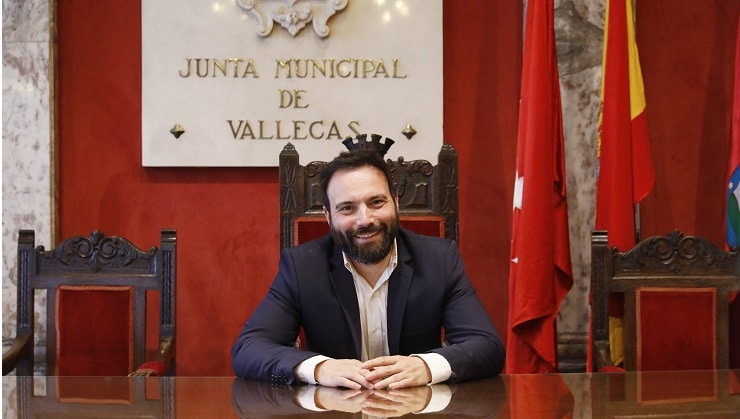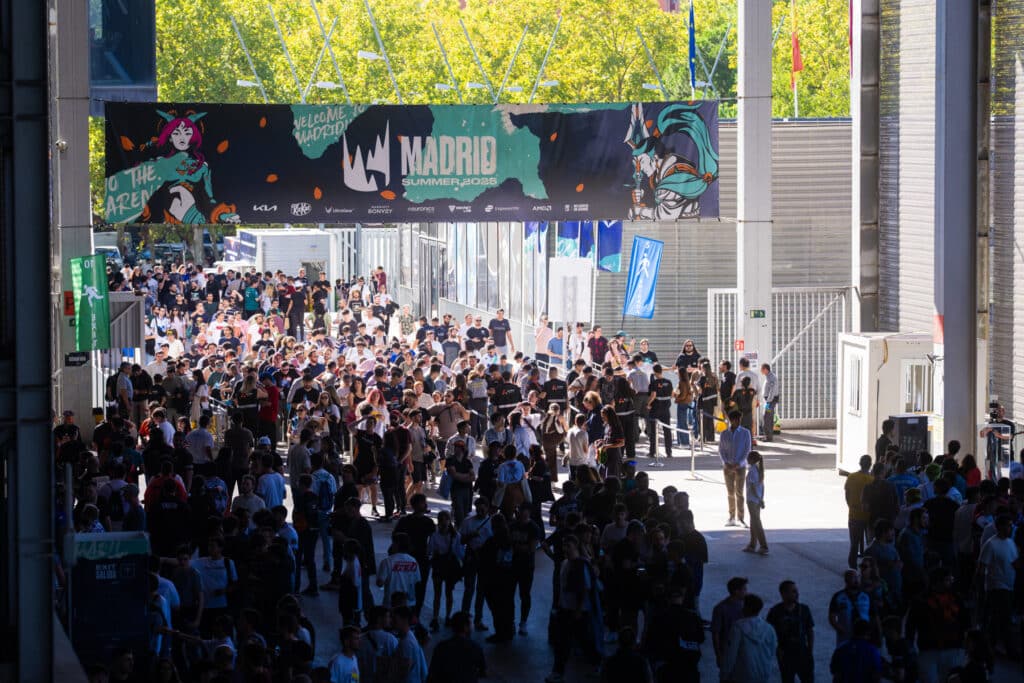
Madrid welcomed thousands of esports fans this summer for the 2025 League of Legends European Championship Summer Finals, showcasing the Spanish capital’s capacity to host major international gaming events.
The tournament not only brought top European teams together but also highlighted Madrid’s efforts to cultivate a local ecosystem for esports and the broader video game industry.
The Summer Finals saw Movistar KOI, a Spanish team, face the favourite G2 Esports in front of a local crowd. In the end, G2 dominated the match with a 3-0 victory and closed the tournament in front of an almost silent crowd.
Thousands of fans from Spain, and the wider EMEA region, travelled to Madrid for the finals, filling Caja Magica and contributing to the local economy. With over 17,000 people attending, according to Riot, the LEC Finals not only demonstrated Spain’s growing interest in esports but also provided the city with international visibility and the opportunity to solidify its reputation as a destination for major competitive gaming events.
Beyond the matches in the arena, Madrid hosted the LEC XPO at Plaza de España, an interactive fan experience welcoming not just League of Legends enthusiasts but gamers of all kinds. The XPO offered activities, panels, and game demos that engaged a broad audience, connecting casual visitors with the city’s gaming infrastructure.
In an exclusive interview with Esports Insider, Ángel Niño, City Councillor for Innovation and Entrepreneurship in Madrid, shared the city’s perspective on hosting large-scale esports competitions.
As he explained, initiatives like the LEC Finals and “Madrid en Game” are designed to integrate gaming into the city’s economic and cultural life, attracting both talent and investment.
Madrid Aims to Become a Hub for Esports and Video Games

The city’s vision of gaming and esports can be condensed in the “Madrid en Game” initiative, which Niño describes as a multifaceted effort to develop the gaming sector.
“’Madrid en Game’ is the City Council’s initiative to attract the gaming sector to Madrid,” he said.
“It consists of a campus of three pavilions — one for promoting the industry and its branches, a second one for esports where people can play for free, and a third pavilion to attract, support, and help grow startups or video game studios in the city.”
By combining public arenas, startup incubators, and high-profile events, Madrid seeks to nurture talent locally and internationally. Moreover, hosting international competitions is also part of the strategy to raise the city’s profile in the technology, gaming, and esport industries — all to “put Madrid on the map,” as Niño said.
These initiatives envision a sustainable ecosystem where players, teams, and studios grow in tandem in the same locality.
“If you have players, eventually they become role models in the local community. They then create more players, more teams, and if you have video game studios, the same applies. And it’s true that we’re still in the early stages of creating a strong ecosystem, but this has only been going on for two years, and what we aim to do is create a strong gaming ecosystem from the ground up,” said Madrid councilman.
Yet, despite the initiatives and investments, Spain shares many obstacles with other countries looking to grow a local gaming ecosystem, and these obstacles all stem from the lack of recognition and regulation of the industry.
Challenges of Regulating and Recognising Esports in Spain
Like many other countries, Spain lacks specific regulations for esports and its ecosystem, including laws to guide tournament organisers, organisations and players. The lack of a legislative framework within which to foster the growth of an industry slows down and can even obstruct local talent, leading to stagnation in the market.
“In Spain, the problem is that there’s no specific regulation for esports players,” Niño explained.
“That means today it would be the same as any other sports player. And that’s why many esports players don’t live in Spain, because if they spend more than 180 days in Spain, even if they play online, the taxes that they have to pay are much higher than if they do it in Turkey or Estonia, for example.”
Moreover, the gaming industry does not yet benefit from the same incentives as other creative sectors. Niño explained that in Spain the film industry, “which has tax benefits specifically for cinema,” is more encouraged because of the regulation in place for the industry. The councilman believes the lack of these regulations and incentivization for the gaming and esport sectors “needs to be corrected,” in order to grow.
But advocating for legislative recognition remains a challenge, as lawmakers do not yet view gaming as an urgent priority, even if it moves “huge” numbers, according to Niño.
According to him, the LEC Finals in Madrid demonstrate the potential impact of combining international esports events, public engagement and policy initiatives. Ultimately, it could serve as a model for other cities seeking to develop gaming ecosystems, showing that strategic investment and event hosting can cultivate both local talent and international recognition.
The post Madrid councilman discusses the impact of LEC Summer Finals on the city appeared first on Esports Insider.






